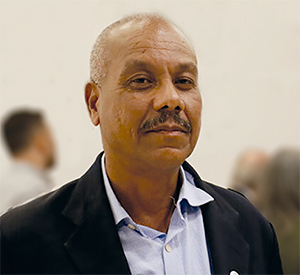![]() Cargando...
Cargando...
Among the contributions from researchers and scientific societies to the Draft Labor Code—set to be discussed by labor collectives starting this September—is a proposal on how to fulfill, monitor, and measure within organizations a right established by the 2019 Constitution of the Republic: the participation of workers in the processes of planning, regulation, management, and control of the economy.
This was emphasized by Guillermo Ferriol Molina, president of the Cuban Society of Labor Law and Social Security of the National Union of Cuban Jurists (UNJC), with whom we discussed the most notable aspects of the upcoming consultation process with all workers.
According to the distinguished specialist, the Cuban labor landscape “has changed substantially” since the current Labor Code was approved in 2013. “Today, employers, workers, and their organizations do not have the same characteristics and conditions as they did back then. Therefore, the proposed law will offer a better and stronger foundation for action in the new economic scenarios.”
Beyond aligning legislation with the country’s current economic and labor realities—as well as with the Constitution and International Labour Organization (ILO) conventions—Ferriol Molina highlighted that the new Code will also contribute to the improved development of labor relations, greater protection of workers’ rights, and the establishment of clear responsibilities for labor actors in increasingly diverse economic contexts.
Ferriol Molina mentioned among the changes the introduction of the constitutional principle of dignified employment, the means of access to judicial and pre-judicial bodies in the event of labor disputes, the emergence of new entities that establish labor relations—such as MSMEs or local development projects—and modifications in the operation of state enterprises and budgeted units, agricultural and non-agricultural cooperatives, foreign-invested companies, and self-employment.
He also pointed to the development of new concepts and practices, such as remote work and telecommuting, and the recognition of occupational safety and health as a fundamental right.
“Labor Law helps organize work and influence its outcomes in all types of organizations, at any time or under any circumstance, through provisions on work organization, wage structure, work and rest regimes, remuneration, discipline, participation, among others. That is why the Draft proposes a new perspective on labor relations,” the jurist emphasized.
A scientific code?
Ferriol Molina, for whom the drafting of this Preliminary Bill “has been an important shared responsibility—and, of course, an enjoyable one,” recalled that the world of work brings together various disciplines, both legal and non-legal, due to its broad scope and diverse nature. This gives greater relevance to the role of researchers and scientific societies.
“Science and research have not only provided the foundation for what is being proposed, but have also allowed the inclusion of study results, practical experiences, and collective knowledge, which have given the document significant structure. The analysis by labor collectives will further contribute to its refinement,” he added.
Examples of these studies include the analysis of regulatory provisions that need improvement to continue promoting the protection of labor rights, the responsibilities of those involved in labor processes, and the promotion of necessary efficiency in the workplace.
The draft also includes provisions that guarantee equal rights for all workers, regardless of the sector or management model in which they work. A detailed review has been conducted of the approximately 90 ILO conventions ratified by Cuba, which must be reflected in national legislation.
Ferriol Molina explained that labor codes and laws from various countries were studied to determine what should or should not be regulated in the Preliminary Bill, taking into account the nature, particularities, and conditions of Cuba’s social and labor system. “Of course, the fundamental labor rights established in the current Code are preserved, to avoid regression or reduction of those rights, as has happened in other nations.”
“Essentially,” he stated, “this Preliminary Bill responds to the current conditions of the labor world in Cuba, with its new and not-so-new economic and labor actors.”
Among the potentially controversial aspects, the specialist cited the general principles of Labor Law, whose definition may raise concerns or require further explanation for proper understanding and application. He also mentioned the definition of equal rights for all workers, regardless of the sector or management model in which they work—“since that is not always evident today,” he added.
Differences in procedures for resolving disputes or claims depending on the sector or type of organization, the proposed change in the legal working age, the types of employment contracts, and the limits on working hours for those with multiple jobs are other topics likely to spark debate.
“Various considerations may arise during the discussions starting in September, and these will surely enrich the Preliminary Bill. There are already positive experiences from similar processes.”
“We bear a great and growing responsibility in studying, interpreting, and enforcing this Code, especially since most labor law practitioners are not jurists. This legal discipline is becoming more transversal and significant in the country’s development, as every economic or social projection must be supported by proper legal instruments and regulation through Labor Law,” he concluded.
Jurists in the Analysis of the Draft Bill
- The Cuban Society of Labor Law and Social Security, along with other scientific societies that are part of the UNJC, plan to support labor collectives, employers, their organizations, and the delegates and deputies of the People’s Power Assemblies in the study and analysis of the Draft Bill, with the aim of clarifying and addressing any concerns.
- Jurists will continue both individual and collective study of the document to contribute assessments that help refine it. Many legal professionals have participated in its drafting and in earlier specialized consultation processes.
- The most significant phase of their involvement as jurists will begin once the new Labor Code is officially approved.
